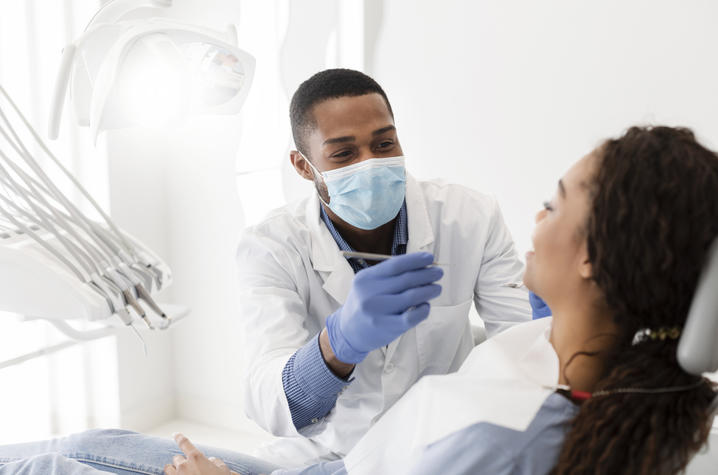Spread the Word: Oral Cancer Screenings are Critical

The University of Kentucky Public Relations & Strategic Communications Office provides a weekly health column available for use and reprint by news media. This week's column is by Dr. Pamela A. Van Arsdall, professor in the UK College of Dentistry and grant education director for the Eradicate Oral Cancer in Kentucky project, and Dr. Melvyn Yeoh, professor in the UK College of Dentistry and director for the Eradicate Oral Cancer in Eastern Kentucky project.
LEXINGTON, Ky. (April 26, 2021) — Kentucky has one of the nation’s highest incidences of oral cancer, and the key to improving survival rates is early detection and getting patients into treatment.
Though we should concentrate on oral health all year round, April is Oral Cancer Awareness Month, a time to highlight the dangers of oral cancers and the importance of screenings. Oral cancer screenings are fast, easy and efficient – and they’re saving lives.
All adults should have a professional oral cancer screening at least once per year, even if they have no teeth.
The five-year survival rate for people with localized oral cancer is 83%. The survival rate drops to 36% when the cancer has metastasized, or spread, to other areas.
The University of Kentucky College of Dentistry is working on a project to reverse the high rates of cancer in the Commonwealth and is specifically focused on Eastern Kentucky – where oral cancer is more than 50% higher than the state’s above-average norm.
The Eradicate Oral Cancer in Eastern Kentucky project is funded through a $1 million grant from the United Health Foundation. Eastern Kentucky, as it turns out, can serve as a roadmap for successful strategies to engage more people in oral cancer screenings and prevention. So far, we have completed nearly 2,000 screenings, which is double our initial goal.
While oral cancer can strike anyone, leading risk factors include smoking, chewing tobacco, excessive alcohol consumption and infection with certain strains of the Human Papilloma Virus (HPV). Several troubling health trends put Kentuckians at a higher risk. According to the United Health Foundation’s America’s Health Rankings report, almost a quarter of Kentucky adults smoke and nearly as many report excessive drinking. Additionally, Kentucky has the highest rate of HPV-related cancers in the United States.
We are taking an all-hands-on-deck approach. Community education, outreach events and partnerships will extend our impact. Local partnerships are essential to encourage more conversations about oral cancer in communities.
Let’s all continue the conversation about oral cancer so more people know how to access screenings and why early detection is critical. Together, we can eradicate oral cancer in Kentucky.
For helpful information on signs and symptoms to be aware of in between dental visits, visit ukdentistry.org/oral-cancer.
As the state’s flagship, land-grant institution, the University of Kentucky exists to advance the Commonwealth. We do that by preparing the next generation of leaders — placing students at the heart of everything we do — and transforming the lives of Kentuckians through education, research and creative work, service and health care. We pride ourselves on being a catalyst for breakthroughs and a force for healing, a place where ingenuity unfolds. It's all made possible by our people — visionaries, disruptors and pioneers — who make up 200 academic programs, a $476.5 million research and development enterprise and a world-class medical center, all on one campus.




